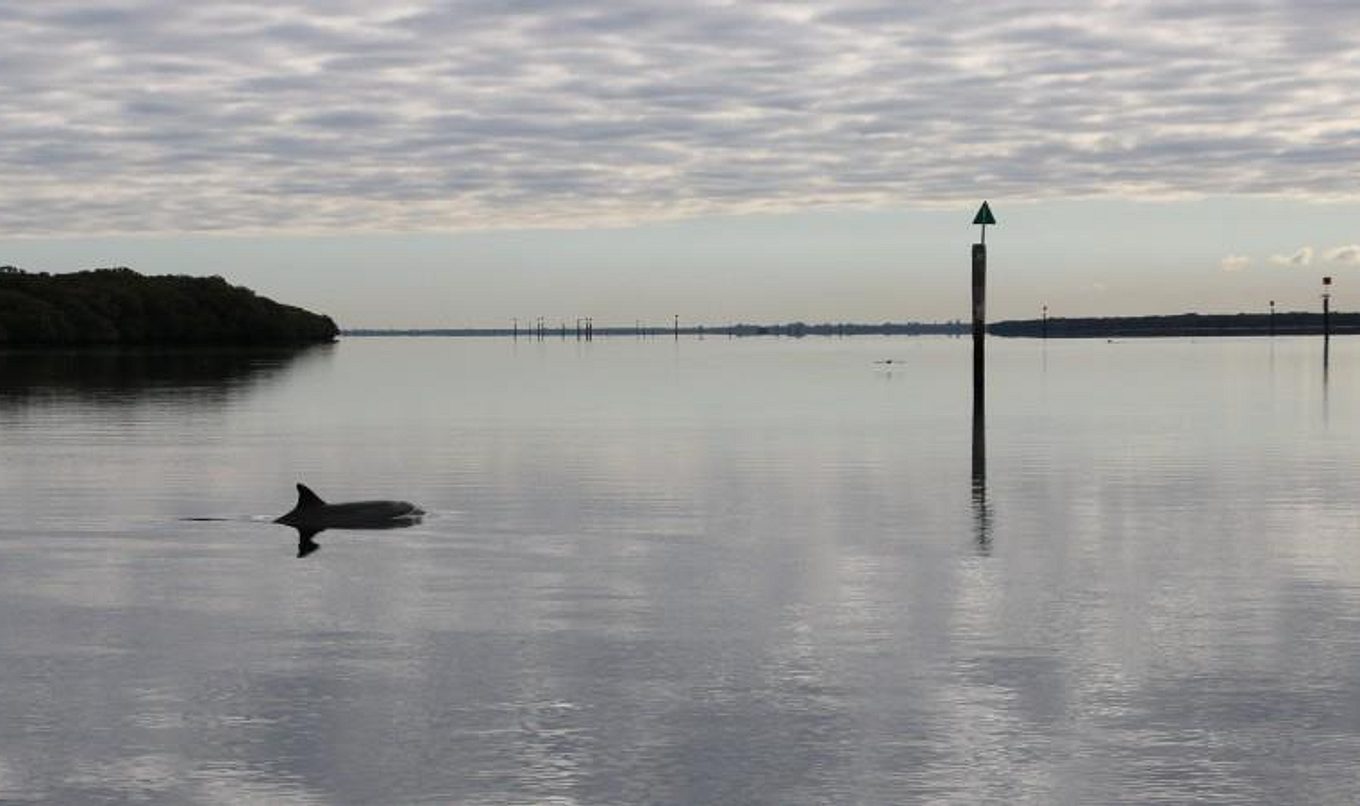Post mortem reveals euthanised Port River dolphin ‘Hunter’ was severely unwell
The post mortem of Adelaide Dolphin Sanctuary (ADS) resident dolphin, known as Hunter, has found the animal was in very poor health and was unlikely to have lived much longer.

The necropsy report, prepared by the University of Adelaide in conjunction with the South Australian Museum, confirms the advice National Parks and Wildlife Service (NPWS) rangers received from an expert veterinarian that Hunter’s prognosis was serious and terminal, supporting the difficult decision to have the animal euthanised.
University of Adelaide Associate Professor in Veterinary Pathology, Dr Lucy Woolford, said the report showed six-year old Hunter was affected by multiple infections which were adversely impacting him, and were likely connected to his recent and significant weight loss.
“Hunter had a severe bacterial infection of the middle and inner left ear which had extended into the surrounding bones causing permanent damage to these structures. This would have permanently affected his ability to hunt and forage,” Dr Woolford said.
“He also had multiple skin abscesses over his body, which are known to be associated with disease causing bacteria leading to infection (sepsis) and death in marine mammals. Further testing of the skin cultures will help us to gain insight into the strains which caused the infection.
“An examination of the animal’s stomach contents showed, aside from four very small shrimp, Hunter appeared not to have eaten recently. He was also afflicted by haemorrhagic gastritis and enteropathy (bleeding in the stomach and intestine), which would have also contributed to his weight loss.
“The underlying cause of these infections will be investigated over the coming weeks, with extensive testing underway to detect a range of bacterial, parasitic and viral diseases. This will take time, given the complexity of the investigation and the requirement of working with specialist laboratories across several states.
“Furthermore, the necropsy has raised significant concerns that Hunter, as well as other dolphins that have become unwell in the Adelaide Dolphin Sanctuary, may have suppressed immunity for reasons that are not clear at this time.”
Department for Environment and Water Director for Conservation and Wildlife, Lisien Loan, said that veterinarians and NPWS rangers who treated the dolphin did so with absolute care and respect to ensure the animal did not suffer through the euthanasia process.
“The department understands and sympathises with the concern and upset felt by community members,” she said.
“NPWS rangers and the additional personnel involved in Hunter’s capture and euthanasia also found the events of that day personally challenging and upsetting, and are committed to doing all that is possible to find out what is affecting the dolphins in the ADS.”
The investigation into what could be affecting the Adelaide Dolphin Sanctuary dolphins was progressing, with a broad range of scientific investigations underway.
Ms Loan said the research group have undertaken an examination of the results of previous necropsies from recovered dolphin bodies, however as yet this has shown no definitive cause for the rapid decline in health that have been observed.
“An additional set of broader range tests are now underway by expert laboratories across Australia,” she said.
“This includes testing for environmental toxicants and factors that may contribute to immunosuppression, involving experts in water quality, toxicology, pathology and marine ecosystems.
“We hope these additional tests will help the investigation team gain additional information about the bigger picture of what is impacting dolphin health in the ADS.”
Coordinated by the Department for Environment and Water, the investigation aims to identify the sources and rationale for what could be impacting the health of dolphins and ecosystems within the Port River and Barker Inlet.
The investigation also includes a range of expert partners, including National Parks and Wildlife Service’s Dolphin Expert Reference Group (made up of independent, qualified veterinarians), Australian Marine Wildlife Research & Rescue Organisation Inc., experts in the management of marine mammals, researchers from the University of Adelaide and Flinders University and the South Australian Museum, and authorities from other relevant government departments, including the Environmental Protection Authority (EPA) and Department of Primary Industries and Regions (PIRSA).

